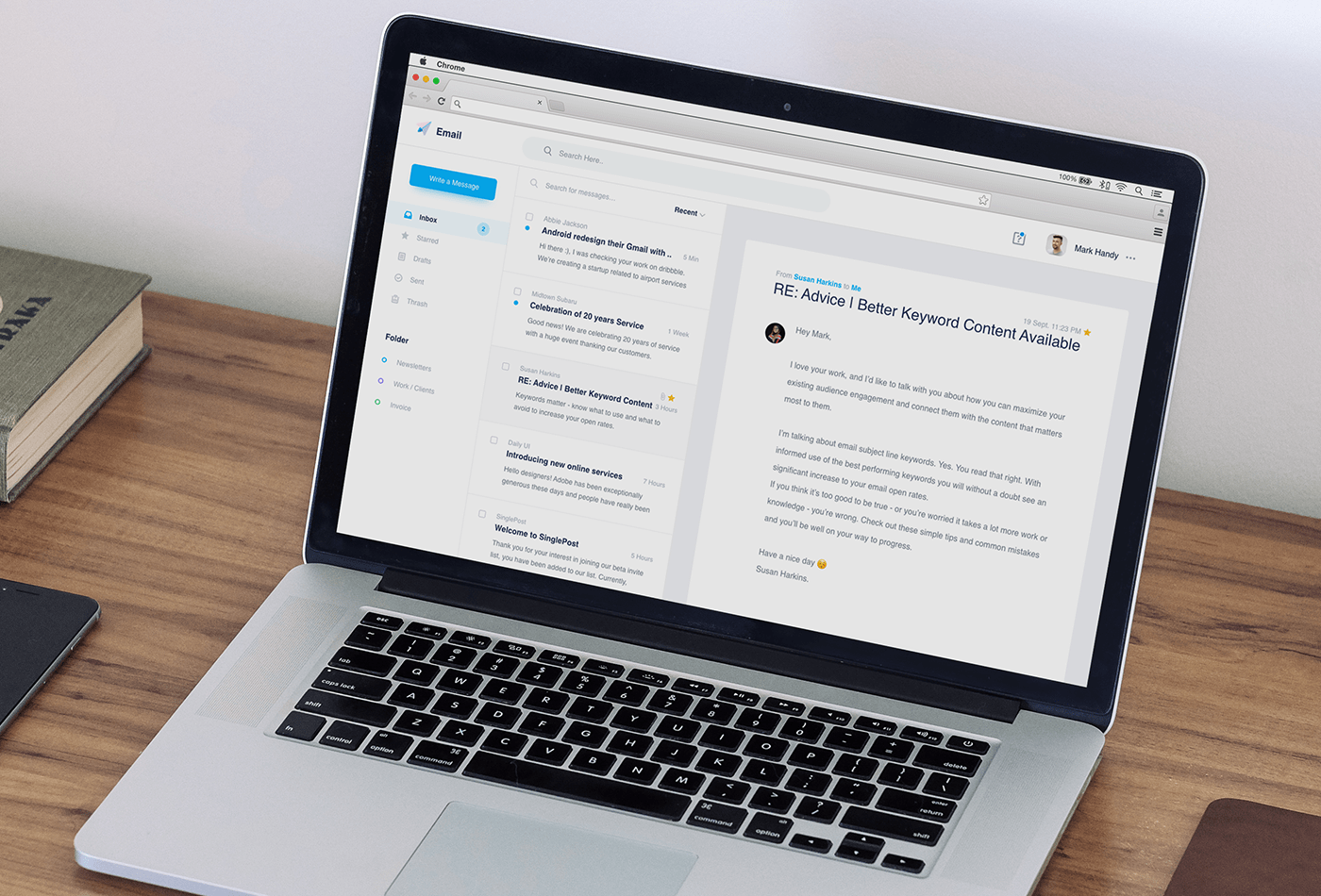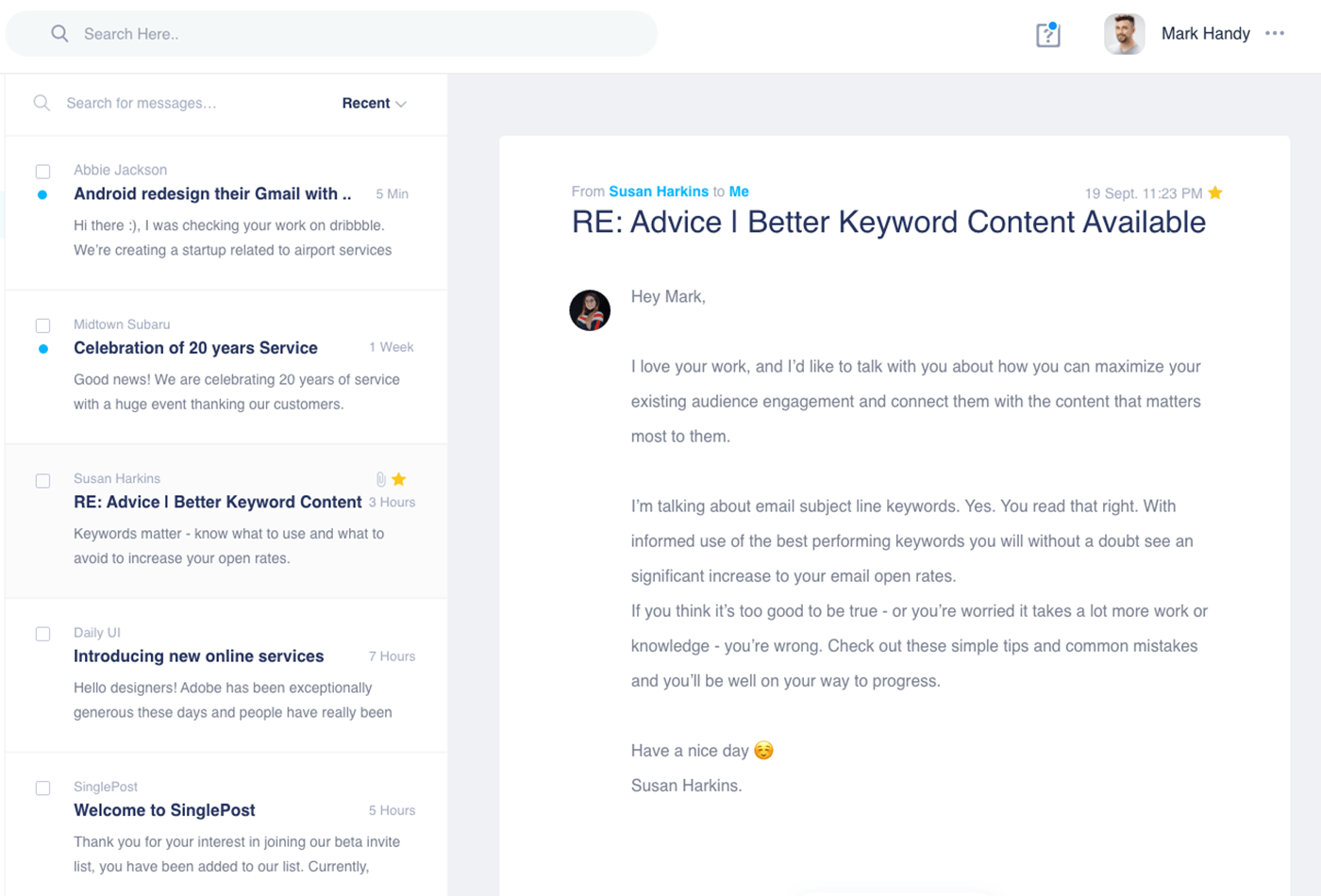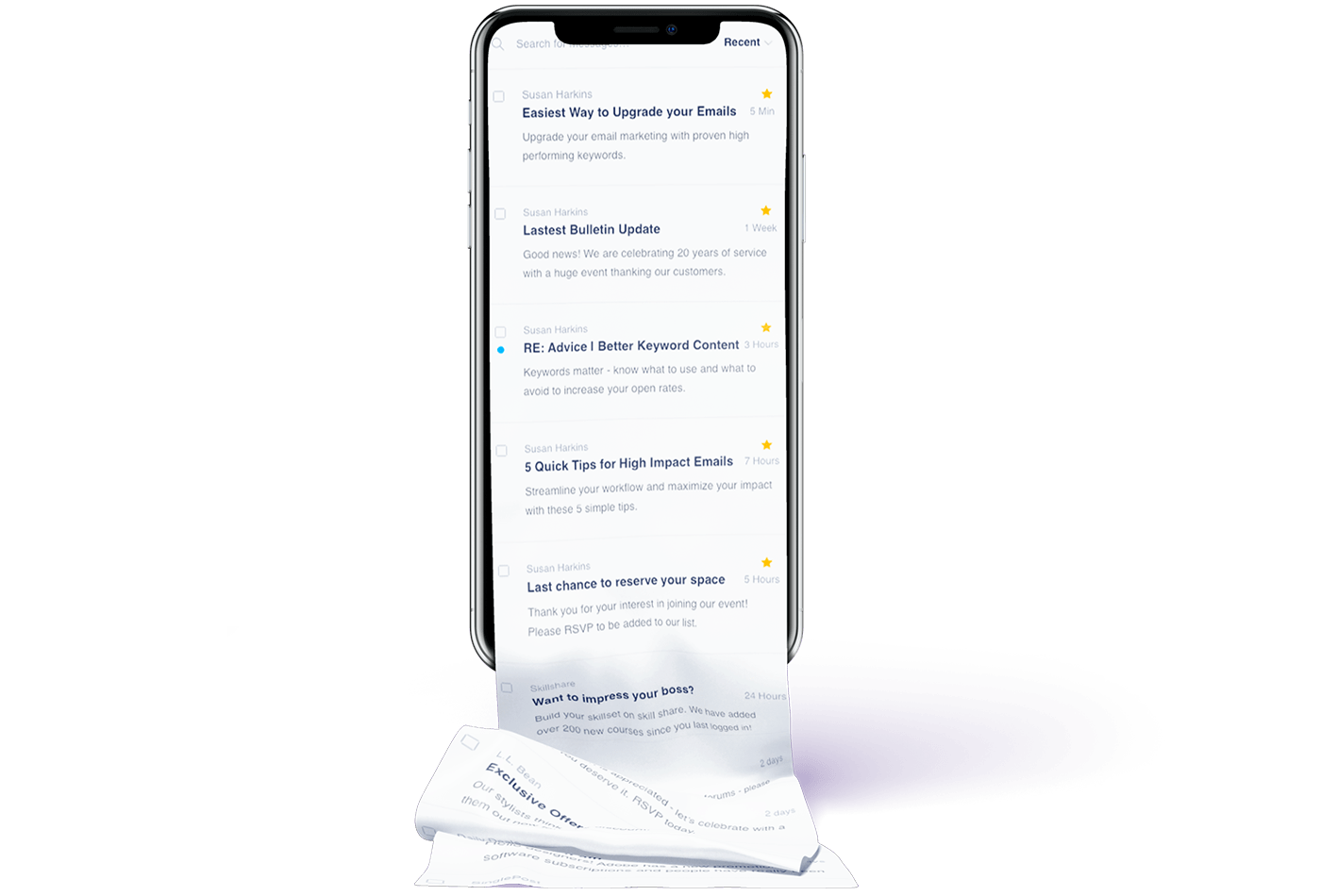

Email marketing has been around for about as long as email has existed. We could spend all day on the nuances of what separates a good email subject line from a great one or an awkward subject line from a truly disastrous one, but that is not the purpose of this article.
No matter the industry, email client, nor demographic there are simple, research backed keywords that are proven to either increase or decrease open rates. I have poured over white papers, brand guides, and countless other resources to compile the ultimate list of over 200 keyword dos and don’ts so you can be a master of the inbox.
This article assumes you have basic knowledge of the structure of emails, what email subject lines, keywords, and preview text are as well as a general understanding of open rates. With over 200 keywords to use or avoid this resource is broad and does not focus on any particular market or niche. These subject line keywords are commonly used words or phrases that have been tested over time across industries. Many are even applicable to other types of emailing such as a job interview follow-up.
You don’t have to take my word for it – well I suppose they are my words I did type every single one of them by hand but without further ado – here are some specific examples I wanted to highlight in a practical way.

Email marketing has been around for about as long as email has existed. We could spend all day on the nuances of what separates a good email subject line from a great one or an awkward subject line from a truly disastrous one, but that is not the purpose of this article.
No matter the industry, email client, nor demographic there are simple, research backed keywords that are proven to either increase or decrease open rates. I have poured over white papers, brand guides, and countless other resources to compile 5 quick keyword dos and don’ts to help you become a master of the inbox.
This article assumes you have basic knowledge of the structure of emails, what email subject lines, keywords, and preview text are as well as a general understanding of open rates. These keywords tips are intentionally broad and do not focus on any particular industry, market or niche. These subject line keywords are commonly used words or phrases that have been tested over time across industries. Many are even applicable to other types of emailing such as a job interview follow-up.
You don’t have to take my word for it – well I suppose they are my words I did type every single one of them by hand but without further ado – here are 5 specific examples I wanted to highlight in a practical way.
Email Keywords for a personal touch.
Avoid: dear friend, greetings, hello.
Use Instead: fwd, re, remember.
.
Email Keywords for a newsletter or announcement.
Avoid: announcing, newsletter, not spam
Use Instead: bulletin, exclusive, latest, notice.
Email Keywords for emphasizing value.
Avoid: bargain, budget, best price.
Use Instead: upgrade, easiest, fastest, prettiest, great deals.
.
Email Keywords for an exclusive offer or sale.
Avoid: while supplies last, once in lifetime, special promotion.
Use Instead: last chance, limited time, on sale now, today only.
Email Keywords for a contest or give-away.
Avoid: giving away, prize, no cost, pre-approved.
Use Instead: contest, event, voucher, token, celebrate.
.

With these quick tips in your back pocket – crafting higher performing emails is in your future!
You made it to the end – I hope you had fun and learned a thing or two along the way.

With over a decade of experience in a variety of creative industries I provide creative design solutions that exceed client expectations.
If you are interested in working with me – please reach out using the contact form below and I will get back to you as soon as possible.
